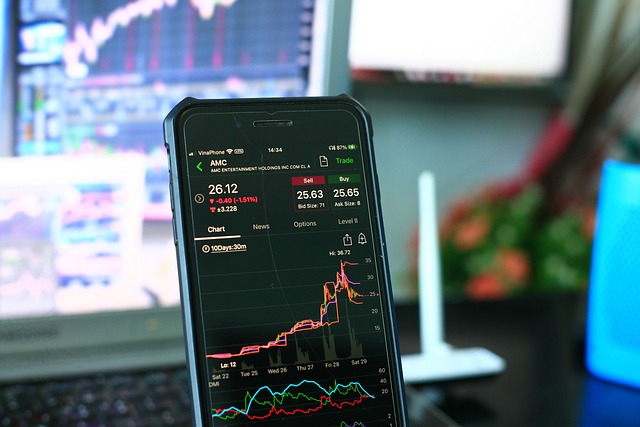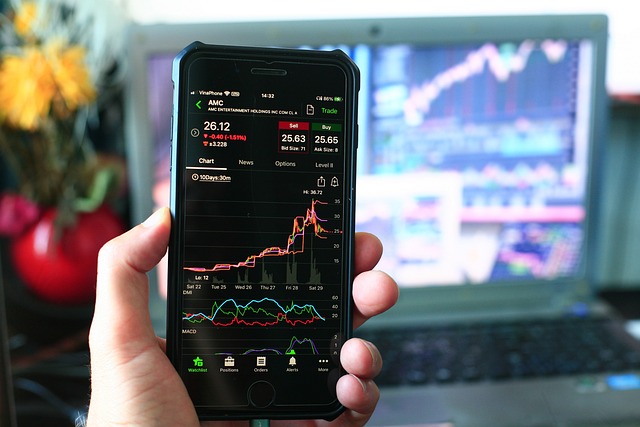Understanding the Fees to Trade Crypto on Robinhood in 2024
As the cryptocurrency market continues to evolve and attract a new wave of investors, trading platforms are adjusting their fee structures to account for competitive demands and user experience. In 2024, Robinhood remains a significant player in this arena. This article delves into the intricacies of the fees associated with trading cryptocurrency on this popular platform.

Robinhood’s Approach to Cryptocurrency Trading
Robinhood has made headlines for its commission-free trading policies, particularly in the realm of stocks and exchange-traded funds (ETFs). However, when it comes to cryptocurrency trading, the platform’s structure presents several nuances that investors should be keenly aware of.
No Commission Fees
One of the most appealing aspects of Robinhood's cryptocurrency trading is the absence of commission fees. Users can buy and sell cryptocurrencies without incurring the traditional commission costs that many other trading platforms impose. This model is designed to encourage users to participate in trading without worrying about extra fees eating into their potential profits.
Spread: The Hidden Cost
While Robinhood markets its platform as commission-free, there is a significant cost that users need to be wary of—the spread. The spread is the difference between the buy price and the sell price of a cryptocurrency. For instance, when you buy Bitcoin, you might notice that the price at which you can sell it is slightly less than what you paid—a difference attributed to the spread.
This is a common practice among trading platforms, but Robinhood's method of implementing the spread means that, although users may feel they are not paying commissions, they are still effectively incurring costs through less favorable pricing.
How Does Spread Work?
To illustrate how spreads work on Robinhood, consider the following example: If Bitcoin is trading at $30,000, you may purchase it at that price. However, when you go to sell it back to the market, the price is set at $29,800. This $200 difference constitutes the spread and serves as an indirect fee for your trading activities.
Market Orders and Limit Orders
Understanding the types of orders you can place on Robinhood is vital for minimizing costs. When trading cryptocurrencies, users can typically choose between market orders and limit orders.
Market Orders
A market order allows users to buy or sell a cryptocurrency at the current market price. While this is often the quickest method to execute a trade, it can expose investors to wider spreads, especially in volatile markets, thus increasing the cost of trading.
Limit Orders
Conversely, a limit order permits users to set a specific price at which they would like to buy or sell a cryptocurrency. This method can be beneficial in reducing the effective spread cost, as you can avoid immediate execution at a price that may not be favorable, particularly during high volatility periods.
How to Calculate Your Fees
While Robinhood's commission-free structure is attractive, it’s crucial for users to accurately calculate their trading fees in terms of spread and order type choices. Below are strategies to assess your costs effectively:
Understanding Your Entry and Exit Points
To accurately calculate potential fees incurred, it’s recommended to:
- Monitor the market prices of cryptocurrencies regularly.
- Utilize limit orders to capitalize on more advantageous entry and exit points.
- Track the spread between the buying and selling prices frequently.
Utilizing Tools and Resources
Employing tools and resources that evaluate pricing trends can help users make informed decisions. Several websites and applications exist to provide live updates on spread data, allowing users to approach their trades with increased confidence and awareness.
Transaction Limits
Robinhood also has specific limitations and regulations concerning cryptocurrency transactions. Users should be aware of the maximum amounts they can buy or sell on any given day, which can impact trading strategies. These transactional limits differ between individuals depending on various factors, including account verification status and historical trading behavior.
Security and Custodial Fees
While Robinhood does not directly charge users custodial fees for cryptocurrency transactions, it is essential to remain vigilant regarding the security of your investments. The platform employs a range of security measures, but it also relies on third-party services which can, at times, incur fees.
Impact of Market Volatility
Cryptocurrencies are notoriously volatile, impacting the spread and consequently the fees users face. During periods of high volatility, spreads can widen significantly, which leads to increased trading costs for users. Understanding when these market fluctuations occur can assist users in minimizing their costs during turbulent trading periods.

Customer Support and Fee Transparency
As cryptocurrency trading grows more complex, access to reliable customer support becomes crucial for users. Robinhood provides resources for users to understand the fee structure and assist when uncertainties arise.
Resources Offered by Robinhood
On the platform, users can access educational resources and customer support documentation that clarifies various fees associated with trading cryptocurrency. However, it is ultimately the user’s responsibility to understand how these fees work and ensure their trading strategies minimize costs.
Informed Trading
Being informed about the dynamics of cryptocurrency trading on Robinhood in 2024 is key for any investor. While Robinhood remains one of the most accessible platforms for trading cryptocurrencies, the intricacies of fee structures warrant careful consideration.
Future of Crypto Trading on Robinhood
Looking ahead, Robinhood has indicated plans to expand its cryptocurrency offerings, potentially leading to more trading pairs and increased user engagement in the crypto space. Should this unfold, awareness of fees and sales strategies will become ever more critical for users.
Adapting to Changes
As the platform evolves and introduces new features, users must stay informed and adapt their trading strategies accordingly. Keeping abreast of the platform's changes will help users navigate fees more effectively, safeguarding against unexpected costs.
Conclusion: The Importance of Understanding Fees
In summary, although Robinhood presents a commission-free platform for cryptocurrency trading, users must remain vigilant about the nuanced costs associated with spreads and order types. By understanding how to navigate these factors effectively, traders can optimize their strategies and potentially enhance their investment successes.
It can be tempting to focus solely on the novelty of trading cryptocurrencies without fully grasping the underlying costs. However, being well-informed about fee structures will ultimately lead to more prudent trading decisions and improved outcomes for investors.
Your investment journey is a long road; being well-informed will certainly pay off in the end.